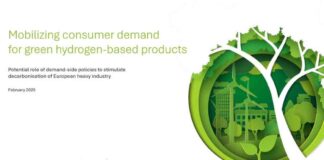### Reducing UNC’s Carbon Footprint: A Sustainable Solution in the Midst of Controversy
In the heart of Chapel Hill, North Carolina, the University of North Carolina (UNC) is making headlines for its bold initiative to reduce its carbon footprint. The UNC power plant, which has been operating since 1992, is seeking to transition away from coal and natural gas towards a more sustainable solution: burning paper and plastic pellets for fuel.
#### A Bold Move Towards Sustainability
UNC’s decision to explore the use of paper and plastic pellets as fuel comes after years of efforts to address climate change. With the university’s commitment to phasing out coal by 2021, the shift towards these unconventional pellets marks a significant step in the right direction. This move is not only environmentally conscious but also showcases UNC’s dedication to embracing innovative technologies and fuel options.
#### The Environmental Impact of Plastic Waste
Plastic pollution is a pressing global issue, with only 9 percent of plastic being recycled worldwide. By burning plastic and paper pellets as an alternative fuel source, UNC is not only reducing its reliance on coal but also diverting waste from landfills. While the use of plastic pellets may emit fewer emissions than coal, it does raise concerns about the perpetuation of plastic production, which has detrimental effects on the environment and human health.
#### The Debate Surrounding UNC’s Decision
Despite the potential benefits of using paper and plastic pellets, there are lingering questions about the technology’s environmental impact. The composition of the pellets, the emissions generated during production and transport, and the long-term effects on air quality are all factors that need to be carefully considered. Experts like Patrick Anderson from the Southern Environmental Law Center emphasize the importance of a comprehensive understanding of the emissions associated with burning these pellets.
#### Transparency and Accountability
UNC’s decision to test engineered fuel pellets from Convergen Energy is a pivotal moment in the university’s journey towards sustainability. While the use of these pellets offers a promising solution to reduce greenhouse gas emissions, it also raises valid concerns about air pollutants and potential health risks. As UNC navigates this uncharted territory, transparency, accountability, and ongoing monitoring of emissions will be crucial to ensuring the success of this initiative.
In conclusion, UNC’s exploration of paper and plastic pellets as a fuel source represents a critical step towards achieving carbon neutrality by 2040. While the transition away from coal is commendable, the university must remain vigilant in assessing the environmental impact of this new fuel source. By balancing innovation with sustainability, UNC is setting a precedent for other institutions to follow in the fight against climate change.














